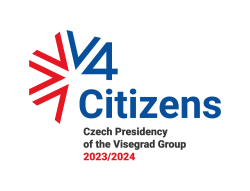
| Wed | Thu | Fri | Sat | Sun |
|---|---|---|---|---|
| 9 | 8 | 4 | 4 | 1 |
| Wed | Thu | Fri | Sat | Sun |
|---|---|---|---|---|
| 9 | 6 | 5 | 4 | 4 |
| Wed | Thu | Fri | Sat | Sun |
|---|---|---|---|---|
| 10 | 12 | 11 | 6 | 6 |
| Wed | Thu | Fri | Sat | Sun |
|---|---|---|---|---|
| 11 | 12 | 9 | 7 | 5 |
V4 To Set Up A Common Crisis Management Centre
At a joint press conference following the meeting of V4 interior ministers in Warsaw, Minister of Interior Sándor Pintér has announced that the V4 will set up a common crisis management centre.
The centre aims to coordinate those activities of V4 Member States, which involve the support of refugees in conflict zones, the enhancement of exchange of best practices, and the harmonisation of the use of budget funds to be spent on it.
The establishment of the centre will be coordinated by Poland holding the presidency of the V4.
The ministers held talks on the possible solutions of the migration crisis. Polish Interior Minister Mariusz Błaszczak said that the V4 (the Czech Republic, Poland, Hungary, Slovakia) strive to make the EU accept their common position according to which the system of refugee relocation proposed by the European Commission has not proved to be effective.
He pointed out that as part of the quota system which envisages the distribution of 160,000 migrants among Member States, only some 6,000 people have been relocated from refugee camps. Yet, the system is attracting migrants and thus does not solve but deepens the crisis.
Mr. Błaszczak called the Hungarian contribution to external border protection exemplary and highlighted that Hungary fulfills its obligations the treaties provide for. And it is in spite of this that certain EU Member States have unfairly criticized the country for doing so.
Referring to the proposal based on the principle of “effective solidarity” and submitted by the Slovak presidency of the Council of the EU last week in Brussels, Mr. Błaszczak said that the V4 supports it and regard it as an effort to make compromises within the EU.
Slovakian Deputy Prime Minister and Interior Minister Robert Kaliňák said that setting up the crisis management centre contributes to the realisation of the effective solidarity principle.
Mr. Pintér has announced the establishment of the centre and added that it will be coordinated by Poland holding the presidency of the V4. According to Mr. Błaszczak, the centre aims to coordinate those activities of V4 Member States, which involve the support of refugees in conflict zones, the enhancement of exchange of best practices, and the harmonisation of the use of budget funds to be spent on it.
Mr. Pintér explained the standpoint of the V4, “We do not want something new but to make EU Member States comply with the original treaties and regulations.” “We believe in the principle of getting back to legal frameworks,” Mr. Pintér underlined.
He added that a number of EU politicians have mixed up illegal migration and asylum policy” and pointed out that over the past year, migrants have arrived in Hungary from some 104 countries crossing the green border illegally. There is no war or catastrophic situation in so many countries, therefore the arrival of so many people without any valid visas and bypassing legal routes has been unjustified.
The V4 have a common position on illegal migration and this cooperation should be improved further, Mr. Pintér said and underlined that “the policy of extradition should be pursued instead of the policy of relocation.”
The policy of extradition has been highlighted in the speech of all the four interior ministers present as the main element of effective solidarity.
On Monday afternoon in Warsaw, the V4 interior ministers held talks with their Austrian, Belgian, Croatian, Bulgarian and Slovenian counterparts.







